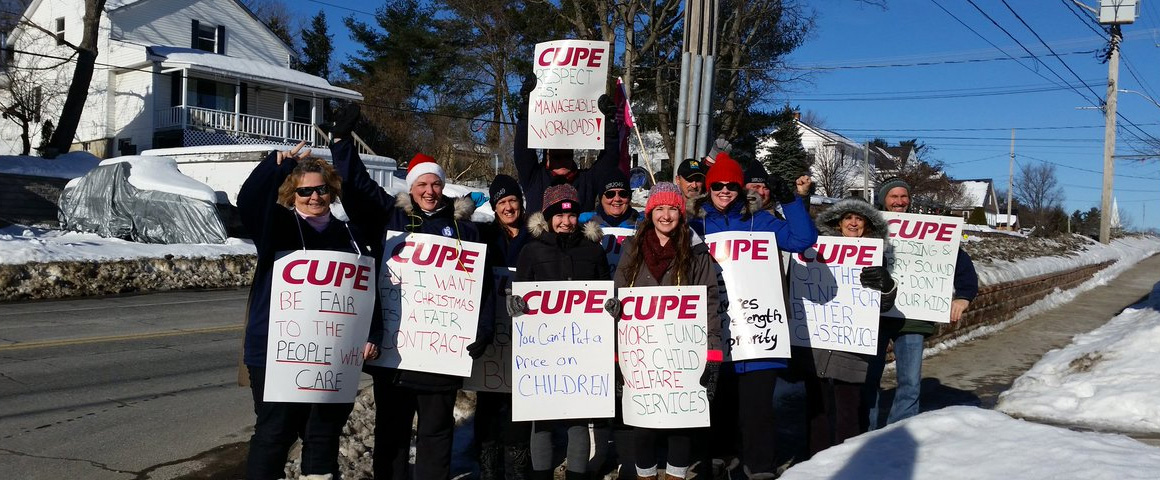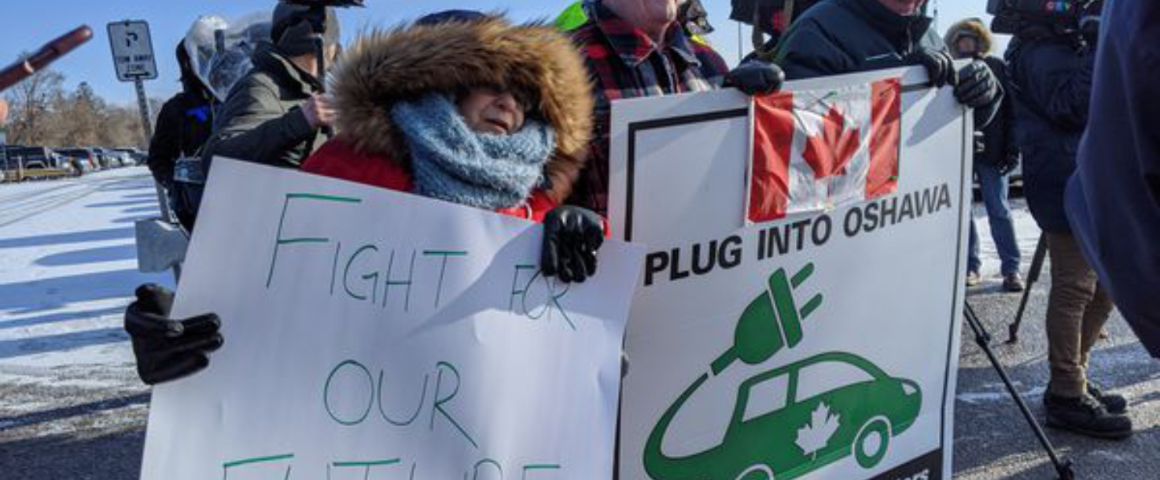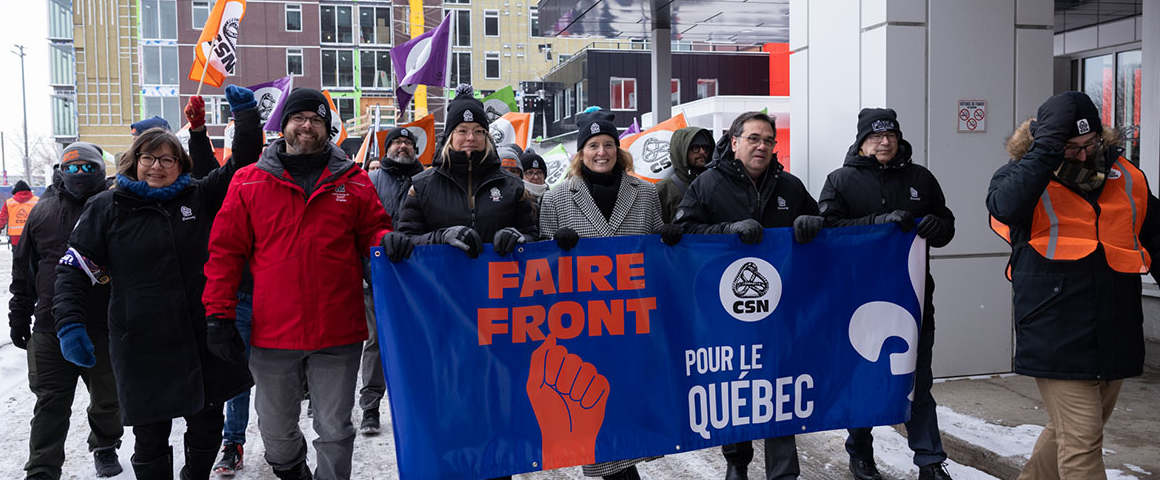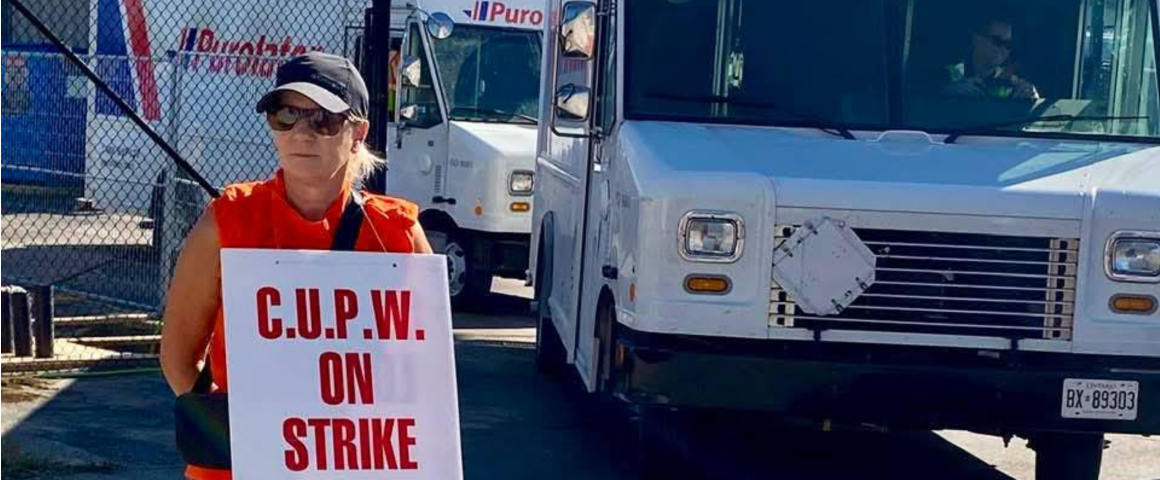PV Ontario Bureau
It is a holiday drama with Kathleen Wynne’s Liberals cast as the austerity-minded Scrooge, and a Northern Ontario Children’s Aid Society as the heartless Grinch.
On December 22, the Nipissing and Parry Sound CAS locked out its 140 workers and suspended all Youth Justice Services and Early Intervention programs. The agency expects children and families to rely on scabs for reduced services, while forcing its trained and experienced workers to walk the picket line.
The workers, members of Local 2049 of the Canadian Union of Public Employees (CUPE), rejected the employer’s final offer by 96% on December 13, but continued bargaining toward a fair contract. During that time the CAS merely re-tabled the same rejected offer while, evidently, preparing a “contingency plan” that included the lockout and scab labour.
The locked out workers are receiving active solidarity from the North Bay and District Labour Council and union locals in the region.
The CAS claims the major stumbling block is paid sick days, specifically targeting contract language that allows for banking sick leave and suggesting this leads to an “above-average” number of sick days. CAS Executive Director Gisele Hebert has stated that reducing paid sick leave, which she claims costs $389,000 annually, is key to addressing the organization’s $2.6 million deficit. The union counters that the Hebert has inflated this figure, something employers are notorious for doing.
The facts suggest that the CAS focus about sick leave is a ploy to get the public onside and avoid the real issue of underfunding. During the 2014-15 year, for example, boarding payments for children in care increased by nearly $500,000, while funding from the Ontario Ministry of Child and Youth Services (MCYS) actually fell by 1%. Ironically, the employer’s own Annual Report from that year supports the union’s position that underfunding and workload are key issues in the Nipissing and Parry Sound dispute: “We have seen an ongoing increase of children being admitted to care to a level that became alarming in January 2015. The Society had exhausted its foster care resources as well as outside paid foster care options which had resulted in children being placed hours out of community at a much higher cost, and was left with no other option but to rent a cottage to accommodate children being admitted to care.”
In October 2016, the union and members of CAS held an information picket outside Parry Sound town council, drawing attention to the problems of funding cuts to child protective services and calling on councilors to demand adequate local funding from Queen’s Park. Union president Debbie Hill noted that underfunding had resulted in job cuts, staff working short, and an increasing reliance on out-of-area workers and service providers.
This reflects a general trend that is affecting the CAS in districts across the province, in which local agencies are handcuffed by an inadequate funding formula that was introduced in 2014 and “accountability agreements” that promise to balance budgets. While their employers have chosen to implement the Ontario government’s austerity measures, CAS workers and their unions are rallying community members and local politicians in the struggle for proper funding that meets community needs.
This was the case in Peel region, where 435 CAS workers who are members of CUPE Local 4914 waged a 13-week strike that ended December 19. Among the key issues was workload, which the employer has been increasing to a point that jeopardized the quality of care given to the children, as well as the health and safety of both workers and children.
As the provincial government continues to impose its austerity agenda on the broader public sector, more people are seeing the political dimension of local workplace disputes. This realization results in stronger community-labour solidarity that is capable of building the mass pressure necessary to force changes in government policy.




